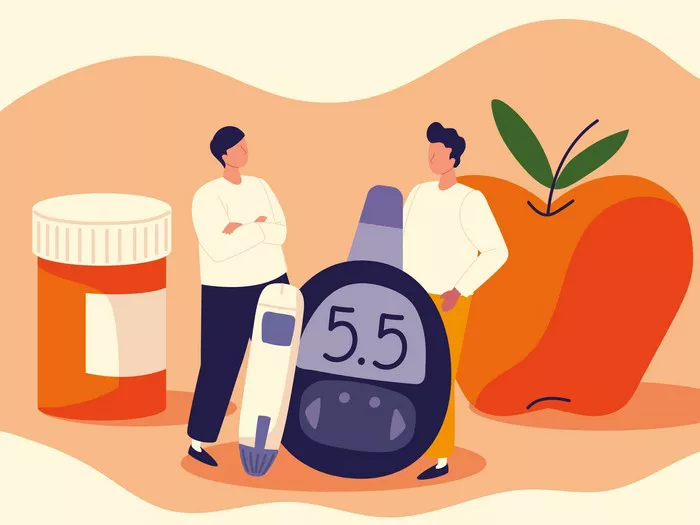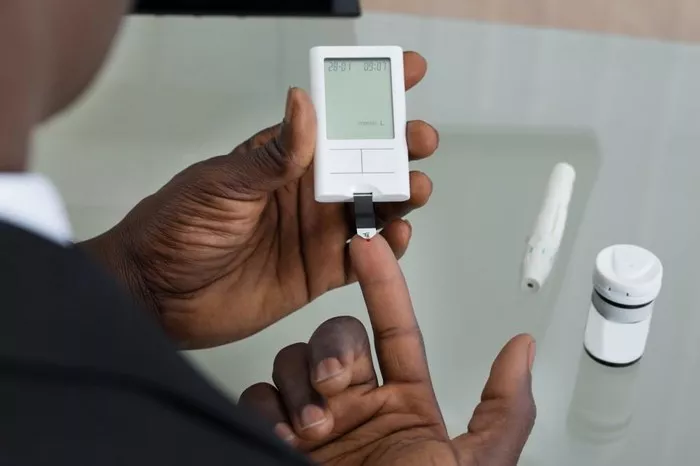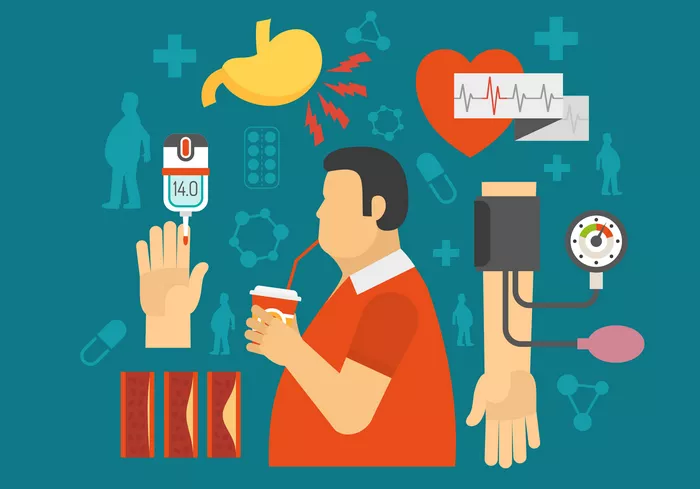Hypoglycemia, characterized by abnormally low blood glucose levels, is a critical concern for individuals with diabetes, particularly those who require insulin therapy. Insulin, a hormone produced by the pancreas, plays a vital role in regulating blood sugar levels. For people with diabetes, especially Type 1 diabetes and some with Type 2 diabetes, exogenous insulin administration is essential to control hyperglycemia. However, the delicate balance required to manage blood glucose levels effectively means that too much insulin can lead to hypoglycemia. This article delves into the relationship between insulin and hypoglycemia, examining the mechanisms, risk factors, symptoms, and management strategies.
Mechanisms of Hypoglycemia
Hypoglycemia occurs when blood glucose levels fall below the normal range, typically under 70 mg/dL (3.9 mmol/L). Insulin’s primary function is to facilitate the uptake of glucose into cells for energy production and to store excess glucose as glycogen in the liver and muscles. When an excessive amount of insulin is present, it drives too much glucose out of the bloodstream, leading to hypoglycemia. Several mechanisms can contribute to this condition:
- Excessive Insulin Dosage: Administering more insulin than required for the amount of carbohydrate intake or in the absence of adequate glucose can rapidly lower blood sugar levels.
- Delayed Meals or Snacks: Not consuming food after an insulin injection can result in a mismatch between insulin levels and available glucose.
- Increased Physical Activity: Exercise increases glucose uptake by muscles, which can enhance insulin sensitivity and lower blood glucose levels further, especially if insulin dosages are not adjusted accordingly.
- Alcohol Consumption: Alcohol can inhibit gluconeogenesis in the liver, a process that generates glucose, thus exacerbating insulin-induced hypoglycemia.
Risk Factors for Hypoglycemia
While excessive insulin is a direct cause of hypoglycemia, several factors increase the risk of this condition:
- Type 1 Diabetes: Individuals with Type 1 diabetes are particularly vulnerable due to their complete dependence on exogenous insulin.
- Advanced Type 2 Diabetes: As Type 2 diabetes progresses, insulin therapy may become necessary, and these individuals can also experience hypoglycemia.
- Inconsistent Food Intake: Irregular eating patterns or skipping meals can lead to mismatches between insulin levels and glucose availability.
- Intensive Insulin Therapy: Tight glucose control regimens that aim for near-normal blood sugar levels can increase the risk of hypoglycemia.
- Renal Impairment: Reduced kidney function can prolong the action of insulin, increasing the risk of low blood sugar.
- Gastrointestinal Issues: Conditions that affect food absorption, such as gastroparesis, can lead to unpredictable glucose levels.
Symptoms of Hypoglycemia
The symptoms of hypoglycemia can vary from mild to severe and are generally categorized into adrenergic and neuroglycopenic symptoms:
- Adrenergic Symptoms: These are triggered by the autonomic nervous system in response to low blood sugar and include:
- Tremors
- Sweating
- Palpitations
- Anxiety
- Hunger
- Neuroglycopenic Symptoms: These result from glucose deprivation in the brain and include:
- Confusion
- Drowsiness
- Difficulty speaking
- Visual disturbances
- Seizures
- Loss of consciousness
Recognizing these symptoms early is crucial for timely intervention and prevention of severe hypoglycemia.
Management Strategies for Hypoglycemia
Effective management of hypoglycemia involves a multifaceted approach that includes prevention, recognition, and treatment. The following strategies are essential for individuals at risk:
- Blood Glucose Monitoring: Frequent monitoring allows for timely detection of low blood sugar levels, enabling prompt action.
- Insulin Dose Adjustment: Tailoring insulin doses based on carbohydrate intake, physical activity, and overall health can prevent excessive insulin administration.
- Dietary Considerations: Consistent carbohydrate intake and regular meals help maintain stable glucose levels. Including snacks, especially before bedtime, can prevent nocturnal hypoglycemia.
- Education and Awareness: Educating patients about the signs and symptoms of hypoglycemia, as well as how to respond, is critical for self-management.
- Emergency Measures: Keeping fast-acting glucose sources, such as glucose tablets or gels, readily available can quickly address hypoglycemia. Glucagon kits should be available for severe cases.
The Role of Healthcare Providers
Healthcare providers play a pivotal role in managing hypoglycemia through patient education, individualized treatment plans, and regular follow-up. Key responsibilities include:
- Patient Education: Teaching patients about the importance of blood glucose monitoring, recognizing symptoms, and appropriate responses to hypoglycemia.
- Personalized Insulin Regimens: Developing tailored insulin regimens that consider lifestyle, eating patterns, and physical activity levels.
- Regular Review and Adjustment: Periodically reviewing insulin doses and making necessary adjustments based on changes in health status, activity level, or diet.
- Support and Counseling: Providing psychological support and counseling to address fears and anxieties related to hypoglycemia.
Advances in Insulin Therapy
Recent advancements in insulin therapy have significantly improved the management of diabetes and reduced the risk of hypoglycemia. These include:
- Insulin Analogues: Rapid-acting and long-acting insulin analogues offer more predictable absorption and action profiles, reducing the risk of hypoglycemia.
- Insulin Pumps: These devices provide continuous subcutaneous insulin infusion, allowing for more precise control of blood glucose levels.
- Continuous Glucose Monitors (CGMs): CGMs provide real-time glucose readings, alerting users to impending hypoglycemia and allowing for proactive management.
- Closed-Loop Systems: Also known as artificial pancreas systems, these integrate CGMs with insulin pumps, automatically adjusting insulin delivery based on glucose levels.
Case Studies and Clinical Insights
To illustrate the impact of excessive insulin on hypoglycemia, consider the following case studies:
- Case Study 1: Adolescent with Type 1 Diabetes
- Background: A 15-year-old with Type 1 diabetes experienced frequent episodes of hypoglycemia despite adhering to her insulin regimen.
- Findings: Detailed review revealed inconsistent carbohydrate intake and variable exercise patterns. Her insulin doses were adjusted, and she was educated on aligning her insulin with her activities and diet.
- Outcome: Hypoglycemia episodes decreased significantly, and she gained better control over her blood glucose levels.
- Case Study 2: Elderly Patient with Type 2 Diabetes
- Background: A 70-year-old male with advanced Type 2 diabetes and renal impairment presented with recurrent hypoglycemia.
- Findings: His insulin dose was too high for his decreased kidney function. The dose was adjusted, and he was educated on recognizing early symptoms of hypoglycemia.
- Outcome: His blood glucose levels stabilized, and he experienced fewer hypoglycemic events.
Future Directions
The future of diabetes management holds promise for further reducing the risk of hypoglycemia. Emerging technologies and novel insulin formulations are at the forefront of this advancement:
- Ultra-Rapid-Acting Insulins: These insulins mimic natural insulin release more closely, offering better postprandial glucose control with a reduced risk of hypoglycemia.
- Smart Insulins: These insulins are designed to release only in response to rising blood glucose levels, providing a more physiological approach to insulin therapy.
- Advanced Algorithms for Insulin Pumps: Improved algorithms can enhance the precision of insulin delivery, adapting to the user’s daily patterns and reducing hypoglycemia risk.
- Gene Therapy and Beta-Cell Regeneration: Research into gene therapy and beta-cell regeneration aims to restore natural insulin production, potentially eliminating the need for exogenous insulin.
Conclusion
Hypoglycemia remains a significant challenge in diabetes management, particularly for those requiring insulin therapy. Understanding the mechanisms and risk factors associated with excessive insulin is crucial for preventing and managing hypoglycemia. Through careful monitoring, personalized treatment plans, and patient education, healthcare providers can help minimize the risk of hypoglycemia and improve overall diabetes control. Advances in insulin therapy and emerging technologies offer hope for even better management strategies in the future, potentially reducing the burden of hypoglycemia and enhancing the quality of life for individuals with diabetes.
Related topics:
How Can I Test Myself For Hypoglycemia



























